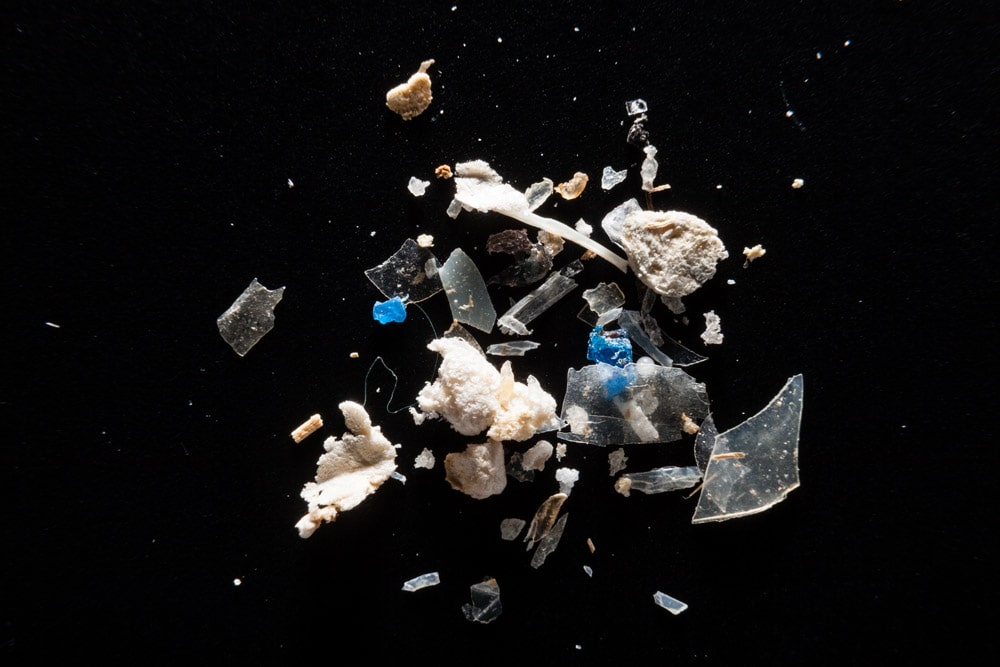Today, the European Commission REACH Committee voted to adopt the European Commission proposal on the restriction of intentionally-added microplastics. The Rethink Plastic alliance welcomes the restriction of intentionally-added microplastics in products, notably in beauty products and on sports pitches. The alliance regrets, however, that companies are given an excessively long time period to implement the necessary changes.
For example, make-up products can continue to contain microplastics for up to twelve years after the adoption of the restriction, even though cosmetic companies have stated that sustainable and effective alternatives are readily available on the market. Allowing the marketing of microplastics for use in sports pitches for eight years is unreasonable given the extent of the pollution stemming from this source and that organic alternatives, as well as infill-free sports pitches, are already in use in all EU regions. The exemptions for soluble and biodegradable polymers may result in the continued use of hazardous microplastics.
Each year more than 42,000 tonnes of microparticles are added to the environment, resulting in multiple negative impacts on living organisms and ecosystems. There is mounting evidence that microplastics also pose a significant risk to human health. The alliance has been advocating for the adoption of a fully comprehensive restriction that includes all microplastics including nanoplastics and all non-essential uses in its final scope.
Next Steps
Before the official adoption of these restrictions, the European Parliament and the Council of the EU will have a three-month scrutiny period, after which the Regulation will enter into force immediately. This regulation marks a crucial first step in stemming the plastic pollution problem at some of its sources and can pave the way for more comprehensive and ambitious regulations – such as those expected for unintentionally released microplastics – in the future.
Expert voices
Dolores Romano, Senior Policy Officer for Chemicals at the European Environmental Bureau said:
“This restriction is key to tackling the severe environmental damage caused by microplastics. But the effectiveness of the ban is weakened by the time it actually takes to implement the bans and the exemptions. This prompts us to call on authorities to implement additional measures in their respective countries to prevent further pollution by accelerating the elimination of these plastics.”
Hélène Duguy, law and policy advisor at ClientEarth, added:
“Today’s vote marks a significant step forward for public health and the environment. If implemented effectively, this restriction will prevent a massive amount of unnecessary pollution caused by these tiny pieces of plastics – which we are already seeing on mountains, in the ocean, in Arctic Sea ice, or in our blood. We will put our full support into the implementation of the ban and hope that everyone, including industry actors, joins in the effort.”
Lucie Padovani, Marine Litter Lobbying Officer at Surfrider Europe added:
“We welcome this long-awaited restriction, which proves that the urgency to tackle microplastic pollution has been acknowledged by Member States. We now hope that the sectors benefiting from longer transitional periods will meet the restriction targets before the deadline, by already starting to opt for sustainable investments, research, and development”.
Frédérique Mongodin, Senior Marine Litter Policy Officer at Seas At Risk said:
“This restriction on intentionally added microplastics in products is the first legislative attempt by the EU to prevent the chronic loss of plastic production pellets into the environment. The restriction includes measures that educate pellet users on proper and lossless pellet handling, and that will require annual loss reporting by industrial users. We are now pushing for additional measures at the EU level for the whole supply chain to be targeted and bound to manage pellets responsibly.”
Media contact
Caroline Will, Rethink Plastic alliance Communications Coordinator.
Phone: +32 487 34 72 15. E-Mail: caroline@rethinkplasticalliance.eu




